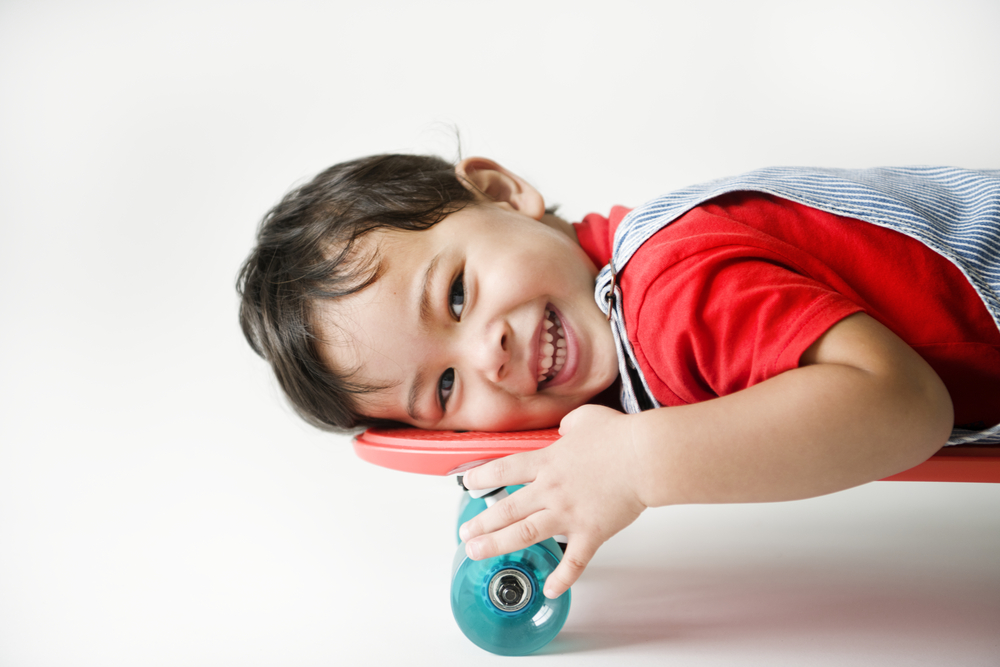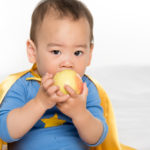
Congratulations! Your child will be turning three soon, which means that your days of weathering the “terrible twos” are coming to and end – and most important, you survived.
The next few years may seem like “magic years” because for once, your child is finally starting to listen to you. But this is also the time when your child’s imagination runs wild, so buckle up for an exciting adventure with your preschooler.
Having said that, your three- to four-year-old will continue to grow and develop in many ways. Although children reach the developmental milestones at different times and rates, here are some things that you can look out for.
Language skills
From a toddler who does not talk very much, things will be quite different for your child in terms of his language skills. Between the ages of three and four, your child should be able to do the following:
- Answer simple questions
- Say his or her name and age
- Speak in short sentences of five to 6 words, and speak in complete sentences by 4 years old
- Speak clearly, although his speech may not be easily understood until his fourth birthday
- Tell stories – lots of them!
Cognitive skills
“Why are leaves green?”
“Why is the kettle hot?”
Your child’s 1,001 questions begins here! While it can get annoying at times, you can be assured that asking questions is a normal developmental milestone.
Apart from asking “why” all the time, your child should be able to:
- Name familiar colours correctly
- Follow three-part commands
- Remember parts of a story
- Grasp the idea of same and different, and start comparing sizes (i.e. bigger than, smaller than)
- Have a better understanding of time (e.g. morning, afternoon, night)
- Count confidently, and understand the concept of counting
- Complete age-appropriate puzzles
- Recognise and identify common objects and pictures
- Sort objects by shape and colour
Movement skills
Your preschooler will be constantly on the move, and should be able to:
- Walk up and down stairs, one foot per step
- Kick, throw and catch a ball
- Run more steadily and ride a tricycle
- Hop and stand on one foot for up to five seconds
- Walk forward and backward with ease
- Bend over without falling
- Put on and remove clothing with assistance
Hand and finger skills
Get ready for your child to show more dexterity when using his hands and fingers. At this point, he should be able to:
- Handle small objects more easily and turn a page in a book
- Use age-appropriate scissors
- Trace circles and squares
- Write some capital letters
- Draw a person with two to four body parts
- Build a tower with four or more blocks
- Screw and unscrew bottles
- Dress and undress independently
Emotional and social skills
By now, your preschooler’s tantrum-throwing days will start to decrease and he will start to cry less when you drop him off at preschool.
Here are some ways in which your 3- to 4-year-old will develop emotionally and socially:
- Enjoys playing with his friends and take turns, and may begin to show some problem solving skills.
- Show affection to those that he is familiar with
- Understands the concepts of “mine” and “his/hers”
- Show a wide range of emotions such as being sad, angry, happy or bored
Your child’s imagination will also start to develop by leaps and bounds. He becomes extremely interested in pretend play which encourages him to think creatively. However, do take note that he may also start to develop unrealistic fears (e.g. monsters under the bed).
When should you be concerned about your child’s milestones from 3 to 4 years old?
As every child develop differently, there’s no way to determine when exactly your child will master a particular skill within this age range. The skills listed earlier are meant to give you a general idea on what to expect in terms of his growth and development, so don’t panic just yet if you find that the rate that he’s hitting the milestones varies slightly.
However, if your child shows any of the following signs of possible developmental delay for this age range, do seek advice from your paediatrician:
- Can’t jump in place
- Can’t throw a ball overhand
- Can’t ride a tricycle
- Can’t grasp a crayon between his thumb and fingers
- Show difficulty in scribbling
- Can’t stack four blocks
- Is clingy and cries whenever you leave him
- Shows no interest in interactive games
- Not interested in making friends with other children
- Doesn’t respond to people outside the family
- Doesn’t engage in pretend play
- Shows resistance in dressing, sleeping and using the toilet
- Throws tantrums that are uncontrollable when angry or upset
- Can’t trace a circle
- Can’t form three-word sentences
- Doesn’t use “me” and “you” appropriately























